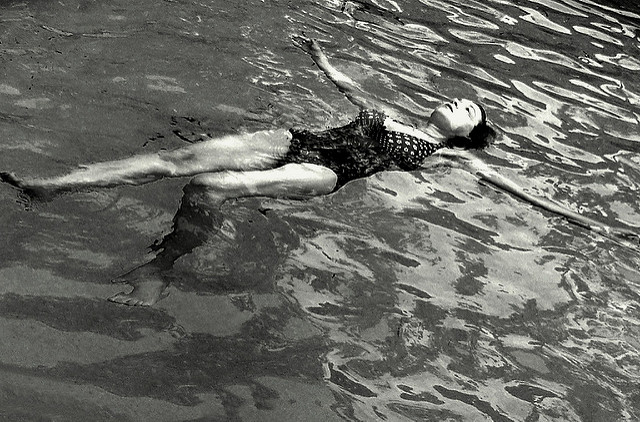
Becoming our own best friend.
In my late 20s, I remember asking my beautiful dad, “What is the one piece of parenting advice you could give me?”
He said, “Help your child find something they are good at and then support them in it—it helps to build their self-esteem and sense of identity.” I remember thinking at the time, Wow, that is really smart, and it has definitely worked out well for me.
But what happens to our self-esteem when we can no longer do what we are good at—due to injury, circumstance, or just plain old lack of interest? Where does it go?
You see, I was a pretty awesome swimmer. In junior school, I made the state championships, and in high school, I was always the last swimmer in the relay (for those of you who don’t know, the fastest swimmer always goes last!). It became a key part of who I was, and I pinned my self-esteem to being the fastest in the pool. And then (dramatic drumroll), I dislocated my shoulder playing beach rugby, and couldn’t swim for a year. I distinctly remember being devastated about this and asking myself, “Who am I now?” It sent me into a spiral of negative thinking and questioning my worth and place in the world. Where do I belong if not in the pool? I had nothing to fall back on, no safety net.
If I wasn’t a swimmer—who was I?
It has taken me another 20 years since I asked my dad that question, but I’ve realised we may need to develop this approach further. We can give our kids and ourselves something much more sustaining and enduring than self esteem: a connection to a wiser and broader self.
I believe we actually need to be teaching our children (and perhaps learning ourselves in the process) that we are much more than simply what we are good at. We are much more than the body, the friends, or the career we have. We are more than the car, the house, or the handbag we have. We are more than the number of “likes” or “followers” we have. And we are more than the achievements of our children.
If we continually pin our sense of self onto these external factors, we are continually at the mercy of the constant changing nature of the world. Friends, “followers,” and possessions come and go; it is risky to tie our sense of self to these.
So, how do we learn that we can experience all of these wonderful parts of our modern life, that we can enjoy and engage with all of them, but that they are not who we are?
I am sure there are other ways, but the way that I have discovered that continues to gift me with an immense amount of freedom, choice, and comfort is mindfulness.
However, I have not been practicing mindfulness for longer than I have been practicing mindfulness. I spent the first 30 years of my life pinning my self worth onto my looks, my success, my achievements, the number of friends I had, the shoes I wore. This way of seeing and being had become automatic for me and with this way of living, I was constantly thrown around by the turbulent waves of emotions resulting from the events in my life.
With almost 10 years of mindfulness training under my belt now, the waves are of course still there—they are a part of being human. I simply don’t get dumped quite as often anymore. And I have finally realised now that I am not the waves; I am the whole damn ocean (although I periodically forget that, too!). That’s why mindfulness and meditation are called a practice—we keep practicing and practicing, possibly forever.
However, if we can get this through to our kids from a young, young age, their battle will be much easier than ours. They will still have to deal with all of the challenges of life, and of course, it is not our job to protect our children from pain. Pain makes us all stronger. However, with the knowledge and understanding of mindfulness, we can give them the tools to ride the tumultuous waves of this human life with a little more ease. In doing this, they may become more resilient as they sit and be with all of the change and madness that is part of our everyday existence.
So, I think my dear dad got this one half-right (he got a lot 100 percent right—be kind, work hard, laugh a lot, eat with gusto, greet everyone you meet with joy, and sing, sing, sing). However, we can build on his advice further by supporting our kids to develop their own internal well of self-worth. By teaching them they are worthy of love and belonging, regardless of their achievements, we gift them the freedom to be themselves and to live, love, and work to their full potential.
Mindfulness does not protect us or our kids from the chaos of life; illness still happens, jobs will still be lost, and our hearts will continue to break. There will be pain—oh yes, there will be pain. Mindfulness, however, can teach us that we are bigger and more expansive than all of it, the good and the bad. We can hold the joy and the sorrow, the success and the failure, in our broad and open awareness, and know that while it is happening to and within us, but it is not us.
With that comes great empowerment, and great freedom.
~
~
Author: Olivia Downing
Image: goldsardine/Flickr
Editor: Callie Rushton
Copy Editor: Danielle Beutell
Social Editor: Travis May


 Share on bsky
Share on bsky




Read 0 comments and reply